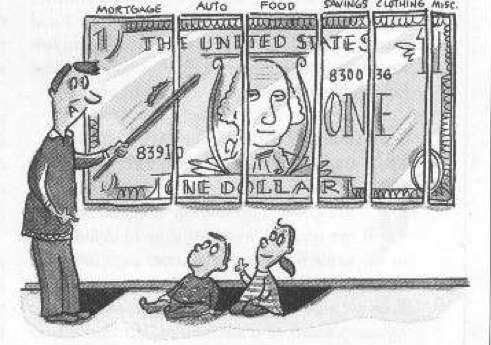October 19th, 2010 by GarySchwitzer in Better Health Network, Health Policy, News, Quackery Exposed, Research
1 Comment »

An historic piece of journalism was published today. Six news organizations partnered on the “Dollars for Docs” project — ProPublica, NPR, PBS’s Nightly Business Report, the Chicago Tribune, Boston Globe and Consumer Reports. They examined $258 million in payments by seven drug companies in 2009 and 2010 to about 18,000 healthcare practitioners nationwide for speaking, consulting, and other tasks.
This webpage can be your gateway to the project, with links to a database searchable by doctor’s name or by state, and links to the journalism partners’ efforts:
Boston Globe
“Prescription for Prestige”
The Harvard brand, unrivaled in education, is also prized by the pharmaceutical industry as a powerful tool in promoting drugs. Its allure is evident in a new analysis of all publicly reported industry payments to physicians.
Consumer Reports
“Consumers Wary of Doctors Who Take Drug-Company Dollars”
Most Americans are skeptical of financial relationships between doctors and companies, according to a new, national from the Consumer Reports National Research Center.
Chicago Tribune
“Doctors Draw Payments From Drug Companies”
Follow drug company money in Illinois, and it leads to the psychiatry department at Rush University Medical Center, a prominent headache clinic on the North Side of Chicago, a busy suburban urology practice and a psychiatric hospital accused of overmedicating kids.
PBS
“Nightly Business Report”
A doctor talks about quitting drug company money when their marketing tactics crossed the line.
NPR
“Drug Companies Hire Troubled Docs As Experts”
*This blog post was originally published at Gary Schwitzer's HealthNewsReview Blog*
September 28th, 2010 by DavedeBronkart in Better Health Network, Health Tips, News, Opinion
No Comments »

You can’t be well-empowered if you hear advice wrong. That’s why in a participatory relationship, an essential skill is accurate handoff of information.
The Foundation for Informed Medical Decision Making (FIMDM), catchily pronounced “fimdim,” has been working for years to improve patients’ knowledge of options and alternatives. In [the September 20th] Boston Globe Liz Cooney talks with people from FIMDM about the issue. An excerpt:
What doctors explain and what patients understand might be two very different things, recent research suggests.
Ideally, patients talk with their doctors about the pros and cons of a particular treatment, weighing the risks and benefits, exploring alternatives — including doing nothing — and then come to a conclusion. That’s the goal of the informed consent process, best known by the paperwork patients sign at the end saying they heard doctors describe what they may be getting into.
If only it were that simple.
[This] article springboards off Cooney’s piece two weeks ago on heart stents, reported here by Dr. John Grohol as Doctors Say One Thing, Patients Hear Another.
A Boston non-profit, FIMDM is the force behind Gary Schwitzer’s excellent Health News Review service, which analyzes health news in the media, teaching e-patients and policy people to sift the gold from the garbage.
*This blog post was originally published at e-Patients.net*
September 24th, 2010 by DavedeBronkart in Better Health Network, Health Tips, News, Opinion, Quackery Exposed
No Comments »

By Lisa Neal Gualtieri. (Her earlier much-commented post on this subject is here.)
The Boston Globe reported this month on the sentencing of a former US Airways Express pilot, Stephen Sharp, “for selling a powdered drink mix over the Internet that he claimed was ‘100 percent’ effective in helping drug-using truck drivers, pilots, and train engineers pass federally mandated drug tests.” The ungrammatically-named “yourintheclear.com” no longer seems to exist.
Mindful of ongoing debate by Gilles Frydman and others about indicators of health website credibility, I searched for other sites selling similar products (there is no shortage) and looked on sites like Craigslist where people post questions about how to pass drug tests and how to detoxify. Based on a quick perusal, I found answers ranging from product advice that I suspect is similar to what “yourintheclear.com” sold to more than I ever want to know about urine temperature to what seemed like common sense advice. Read more »
*This blog post was originally published at e-Patients.net*
May 24th, 2010 by RyanDuBosar in Better Health Network, Health Policy, News
No Comments »

Healthcare reform is forcing medical students to learn about the financial costs of the tests they order, as well as their clinical importance. Once a taboo topic, it’s being openly taught to students to prepare them for practice.
At Harvard, one physician in training duplicated television’s “The Price is Right” to keep his peers guessing at the costs of tests on a patient’s bill. Molly Cooke, FACP, a Regent of the College, encourages doctors to consider the value of the tests they order as they deliver care. (Kaiser Health News, New England Journal of Medicine)
The price isn’t right for electronic medical records. Even $44,000 in stimulus money isn’t enough to make doctors jump into using computers. Read more »
*This blog post was originally published at ACP Internist*
December 11th, 2009 by Gwenn Schurgin O'Keeffe, M.D. in Better Health Network, Health Tips
No Comments »


With the holidays upon us and our country still facing a challenging economic crisis, many families are struggling with how to balance celebrating and spending without disappointing their children.
From news stories to Facebook postings, families are expressing clear concern for how to celebrate this year, what to buy for their kids and how much money to spend. They want to be honest with their kids yet shelter them from their adult financial concerns at the same time. Moreover, they feel guilty because this year was supposed to be different because last year they had the same stresses and concerns. Read more »
*This blog post was originally published at Dr Gwenn Is In*















